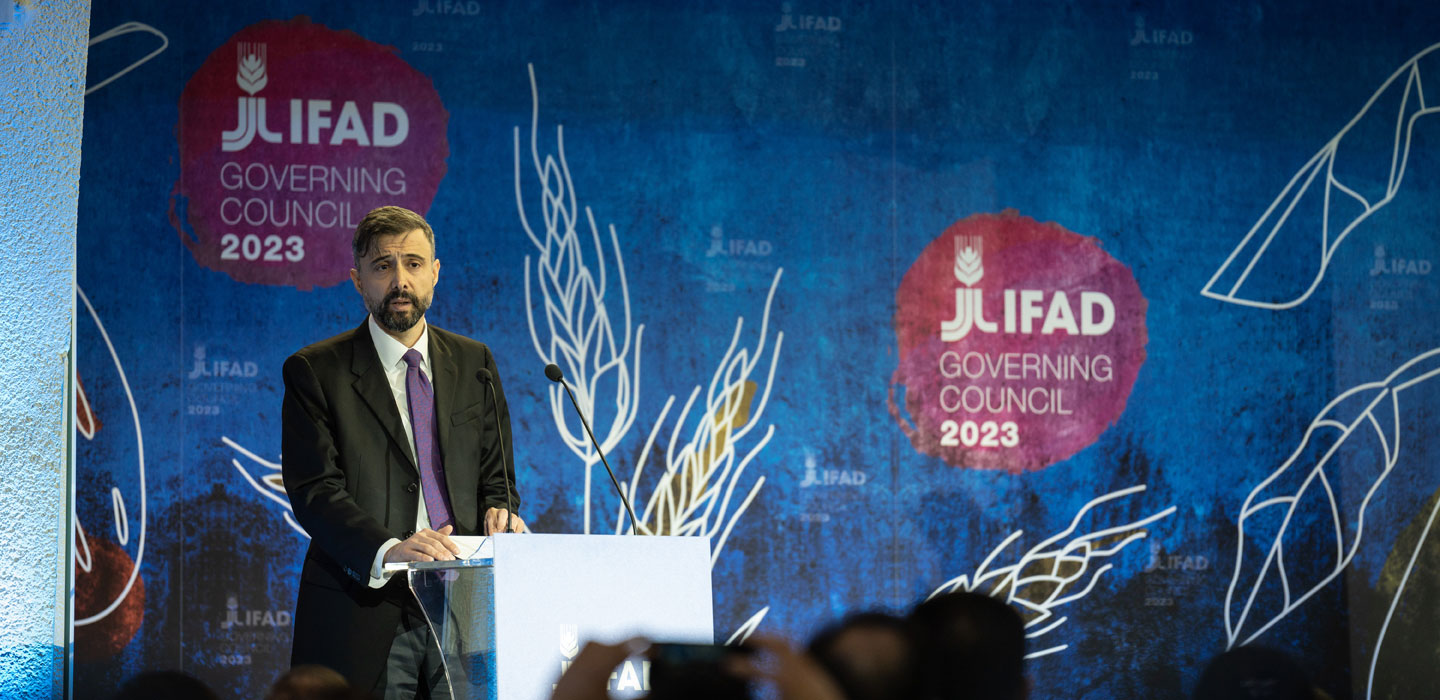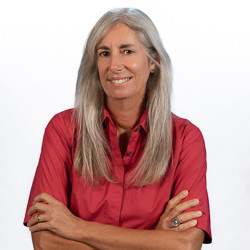IFAD President calls on government leaders to step up investment in the world’s poorest people
IFAD Asset Request Portlet
Asset Publisher
IFAD President calls on government leaders to step up investment in the world’s poorest people
14 February 2023
Rome, 14 February, 2023 – It is time for global leaders to accelerate action for food security by stepping up investments in rural communities and the small-scale farmers who produce one-third of the world’s food, said the President of the International Fund for Agricultural Development (IFAD), Alvaro Lario, in an urgent plea at IFAD’s 46th Governing Council meeting in Rome today.
“Think how much more rural people could contribute to global food security, peace and stability if they had the resources to improve their farms and businesses and to prosper, not just survive,” Lario told heads of state, government leaders and representatives from IFAD’s 177 Member States.
Mia Amor Mottley, Prime Minister of Barbados, in her statement to delegates said: “This is a moment for the world to recognise that we need to invest right now in securing food and nutrition for citizens across the planet, especially poor people. To invest in small holder agriculture. To invest in diversified local production and food systems transformation. To invest in ending the world’s hunger and nutrition crisis.”
As IFAD sets out on the 13th replenishment of its resources, a year-long consultative process during which Member States come together to agree on strategic directions and mobilize the funds IFAD provides as concessional loans and grants to developing countries, Lario stressed the unprecedented challenges and dire circumstances now facing the world.
“The world is in permanent crisis. And it will continue to be as long as we respond to each emergency in isolation, without complementary investments in holistic, longer-term solutions,” said Lario. “It costs less to fix a problem than it does to respond to an emergency. And the more we delay, the higher the costs.”
Multiple crises, including climate change, conflict and global inflation are combining to create a food crisis of epic proportions, as progress in achieving Zero Hunger moves backwards. Currently, more than 1 in 10 people suffer from hunger and over 3 billion people cannot afford a healthy diet.
The President of Somalia Hassan Sheikh Mohamud, in his keynote address, emphasized the real impacts of hunger being felt in his country.
“In Somalia, we are taking food security very seriously,” said Hassan Mohamud. “In fact, I have stated many times before that food security is a fundamental part of national security for my government. In this sense the old saying that ‘a hungry person is an angry person’ is correct.”
He added: “We have the challenge of rebuilding a hopeful future for a truly resilient and deserving people with a strong innovative base to address food security and sustainable development.”
According to latest IPC statistics, parts of Somalia are extremely food insecure, just as millions more are suffering catastrophic hunger around the world.
Investments in agriculture are effective in reducing both hunger and poverty. GDP generated by agriculture, for example, is 2 to 3 times more effective in reducing poverty than growth in any other sector. “But beyond the numbers are the people,” stressed IFAD’s President, “the 3 billion people who rely on small-scale farming for their food and livelihoods.”
At a launch event for IFAD’s 13th replenishment (IFAD13), IFAD Goodwill Ambassador, Sabrina Dhowre Elba addressed governors in a video message. “I don’t need to tell you how urgent the need is. Eight hundred million women, children and men are too hungry to live normal and productive lives. The people who grow our food do not have enough to feed themselves,” she said.
IFAD is aiming to achieve a substantial real increase in Member State contributions to extend its impact around the world. IFAD13 commitments present an opportunity to define the path towards improved food security and reduced poverty after decades of under-investment in small-scale agriculture.
“IFAD is dedicated to ensuring the populations we serve, who produce so much of our food, get the support they need to take the lead in building their livelihoods and resilience,” said Lario. “They are not passive victims but a powerful force for change,” he added.
Note to editors:
Watch highlights and livestream of the IFAD’s 46th session of the Governing Council.
A variety of IFAD spokespeople are available for media interviews upon request.
Media contact: Susan Beccio / [email protected] / +39 3349533030
Press Release No.: IFAD/10/2023
IFAD is an international financial institution and a United Nations specialized agency. Based in Rome – the United Nations food and agriculture hub – IFAD invests in rural people, empowering them to reduce poverty, increase food security, improve nutrition and strengthen resilience. Since 1978, we have provided more than US$24 billion in grants and low-interest loans to fund projects in developing countries.
Broadcast-quality video content available upon request [email protected]
A wide range of photographs of IFAD’s work in rural communities is available for download from our Image Bank.
